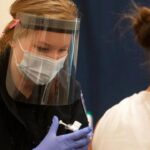Introduction to JCEMS
Aims & Scope
The Journal of Collegiate Emergency Medical Services (JCEMS) [ISSN: 2576-3687 (Print), 2567-3695 (Online)] is the official, peer-reviewed journal of the National Collegiate Emergency Medical Services Foundation. Established in 2017, JCEMS publishes the only scholarly journal and news source dedicated exclusively to the collegiate and campus-based EMS community. Our mission is to promote leadership, clinical excellence, and original research. We stand side-by-side with collegiate EMS agencies, campus safety departments, and university health centers to protect the health and safety of the people on our campuses.
The field of campus-based prehospital emergency care is concerningly underrepresented in the scholarly literature and in popular sources. We strive to provide a voice to the collegiate EMS community and to spur a revolution in collegiate EMS research. In addition to publishing high quality, open access content from recognized scholars and experts, we encourage and mentor budding leaders, clinicians, and researchers –students and young alumni– to develop high caliber articles and research projects.
JCEMS publishes seasonal print issues and provides all content online on its open-access website (CollegeEMS.com). We welcome original research manuscripts, case studies, and reviews. In addition, we invite pieces featuring news and commentary, expert perspectives and opinions, advice on best practices, and letters to the editor.
All topics of relevance to the collegiate EMS community are welcome including, but not limited to:
Patient Care
Clinical Medicine
Operations
Equipment
Transport and Vehicles
Dispatch and Communications
Training
Administration and Management
Leadership
Fundraising
Organizational Structure
Agency Development
Networking and Collaboration
Career and Alumni Resources
Campus Public Health
Campus Public Safety
JCEMS prioritizes manuscripts that present original research findings and those that offer a novel approach or perspective on under-explored issues in collegiate EMS.
Editors
Christopher Gaeta, EMT-B • Editor-in-Chief
Ernest Wang, EMT-B • Managing Editor
The Editors can be reached by email at JCEMS@CollegeEMS.com.
Editorial Board
Our Editorial Board is composed of clinicians, researchers, educators, and leaders with extensive records of service in collegiate EMS and emergency medicine.
For a list of current Editorial Board members, please visit our Editorial Board & Staff page.
National Collegiate EMS Foundation
About NCEMSF
Founded in 1993, the National Collegiate Emergency Medical Services Foundation (NCEMSF) is a 501(c)(3) non-profit organization committed to scholarship, research and to creating a safer, healthier environment on college and university campuses through the support, promotion, and advocacy of campus-based EMS. NCEMSF is committed to the advancement of existing response groups and assisting in the development of new response groups. NCEMSF serves as an umbrella organization supporting its approximately 250 constituent member colleges and universities in providing campus-based EMS. NCEMSF provides a robust network of supportive professionals and alumni as well as a forum for education and communication between its constituent members.
Partnership with JCEMS
On its 25th Anniversary, NCEMSF formed a partnership with JCEMS to promote collegiate EMS scholarship and to spark immediate and sustainable progress in the young, growing field of campus-based prehospital emergency care. NCEMSF serves as the official sponsor and parent foundation of JCEMS and provides networking, administrative, and financial support. JCEMS and NCEMSF collaborate to help guide collegiate EMS providers and organizations in the development of research projects and the production of publishable work.
To ensure rigor and independence in the editorial process, the JCEMS Editorial Board maintains editorial autonomy. The NCEMSF Board of Directors has no authority to determine the content to be published in JCEMS, and members of the NCEMSF Board of Directors are not eligible to serve on the JCEMS Editorial Board. Members of the NCEMSF Board of Directors may be invited to serve as peer reviewers. Individuals affiliated with NCEMSF, who do not serve on the Board of Directors, may be invited to serve on the JCEMS Editorial Board or as reviewers.
Advantages of Publishing in JCEMS
Publishing in JCEMS offers outstanding value to researchers and authors in the field of prehospital emergency care.
- JCEMS publishes the only scholarly, peer-reviewed journal and news source dedicated exclusively to collegiate EMS.
- JCEMS publishes a seasonal print journal and provides all content open access at CollegeEMS.com.
- Our Editorial Board is composed of distinguished clinicians, researchers, educators, and leaders with extensive records of service in collegiate EMS and emergency medicine.
- All manuscripts classified as Original Research, Case Reports, or Reviews undergo a double-blind peer review process. Double-blind peer review strengthens article quality and minimizes bias in selection.
- Our open access policy ensures that articles are freely available to the public immediately after online publication. Authors and readers can access, share, print, and distribute JCEMS content for free. Unlike most open access journals, JCEMS does not charge authors to submit or publish articles.
- We maintain a robust social media platform and outreach program to ensure that your article receives widespread recognition.
Qualifications of Contributors
We encourage submissions from leaders and experts in collegiate EMS and related fields including, but not limited to:
Student providers
Student EMS managers and supervisors
College EMS alumni
Medical directors
Collegiate EMS advisors
College administrators
Emergency medicine clinicians (physicians, nurses, paramedics, etc.)
Emergency managers/public health officials
Campus safety and emergency management personnel
Campus health/counseling services personnel
Joint submissions from two or more authors are accepted and encouraged. In particular, we encourage collaboration between student providers, professional leaders (eg, medical directors, college administrators), and relevant academic faculty members.
Intended Audience
JCEMS is designed for the entire collegiate EMS community, understood in a broad sense. Our primary anticipated audience is collegiate EMS providers and leaders including student providers, medical directors, and professional advisors or managers. Our content will also be relevant and accessible to:
Collegiate EMS alumni
Campus safety administrators and officers
Health and counseling services personnel
College administrators
Student government officials
Professional EMS administrators and providers who work with college agencies
EMS providers who respond to campus calls
Pre-health advisors and career counselors
High school students interested in EMS
Campus first-aid volunteers and lifeguards
Mentorship & Assistance for Authors & Researchers
Our Editorial Board is committed to working with authors at every stage of the research and publication process, all the way from study design to manuscript preparation and review. We understand that the research and publication process can be daunting, particularly for young researchers and clinicians. Our mission is to spur research in the underrepresented field of campus-based prehospital emergency care and to develop budding researchers and clinicians.
We encourage you to contact our Editors at JCEMS@CollegeEMS.com if you might be interested in conducting a study or writing an article of relevance to the collegiate EMS community. Our Editors and Editorial Board would be thrilled to provide advice or connect you with a mentor who could answer any questions regarding topic selection, research design, data analysis, manuscript writing, submission guidelines, and the publication process. Our Editors and Editorial Board may also be able to help connect you with partners for collaboration in research and writing. Please understand that while our Editors and Editorial Board may provide advice and determine whether your article might be of appropriate scope for JCEMS, we cannot provide insight into your chances of acceptance prior to submission.





